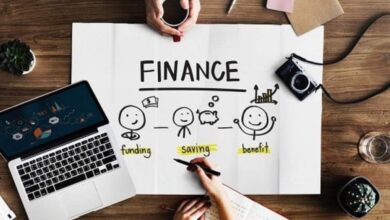Key Points:
- A total of 2 arrests are made in the case.
- Around 70 companies are identified by Mumbai police for selling fake social media followers and activities.
- Statements of around 25 people have been recorded so far.
- How did this investigation start?
- Why do influencers want more followers?
Singer Badshah recorded his statement in fake social media followers’ case on Thursday. The rapper was summoned by the Mumbai police on 3rd August to come and give his statement.
The Special Investigation Team (SIT) of Mumbai Police has till now verified 25 people in the case of fake social media followers. It won’t reveal the names of the individuals involved, however, because it might hamper the investigation.
He has been summoned to the crime branch office at 1 pm today. In this case, Badshah is the first Bollywood celebrity to be summoned by the Crime Branch.
Reports suggest that the crime branch may issue summons to Deepika Padukone and Priyanka Chopra too in the case.
“Mumbai Police SIT has verified 25 people till now. A few of them have recorded their statements as witnesses in this case as of now,” said Deputy Commissioner of Police (DCP) Nandkum Thakur, Crime Branch. “Police will not disclose the names of Thakur, Crime Branch. “Police will not disclose the names of people under investigation as this may hamper the probe,” he said.
On Tuesday, the crime branch’s Central Intelligence Unit (CIU) arrested 21-year-old Abhishek Davide who works for a website called followerskart.com, which allegedly provides fake followers and likes to people for a fee using automated software known as a bot. Davide alone, the police said, had allegedly amassed more than five lakh fake followers for 176 accounts – including those of the 18 celebrities summoned – on Facebook, Instagram, Twitter, TikTok, and other social media platforms. The police said they have found three bank accounts in his name, in which there are transactions involving around $12,000 (just over Rs 9 lakh) in the past six months.
On Wednesday, Mumbai police had arrested 29-year-old Kashif Mansoor in fake social media followers’ case for allegedly selling fake followers. As per the Mumbai police, Mansoor, a civil engineer, has completed 25,000 orders to date and sold 2.3 crores fake followers, to date.
How did this investigation start?
The Mumbai police have unearthed an international racket involving the creation of fake social media profiles, the sale of fake followers and likes to genuine and fake accounts, and other fraudulent activities by websites presenting themselves as social media marketing agencies.
After singer Bhoomi Trivedi complains about fake Insta account with her name being used to cheat others, police unearth a huge scam in which shady websites sell “influence” to real and fake social media accounts.
Under the IT Act, which deals with cyber and electronic resources, section 66D states, “Whoever, through any communication device or computer resource cheats by personation, shall be punished with imprisonment of either description for a term which may extend to three years and shall also be liable to fine which may extend to one lakh rupees”.
WAS BHUMI TRIVEDI TECHNICALLY ‘CHEATED’ BY THE FAKE PROFILE?
This is an interesting question given the lack of precedence in cases involving transactions in fake profiles.
Section 416 of the IPC – Cheating by personation – states, “A person is said to “cheat by personation” if he cheats by pretending to be some other person, or by knowingly substituting one person for another, or representing that he or any other person is a person other than he or such other person is.”
Why do influencers want more followers?
Social media has become a fixture in our lives. We use it to stay connected when we cannot be physically together and to connect with those who we might never meet physically.
It’s created an environment where just about everyone has a voice. This means there are more diverse discussions because a handful of media organizations are no longer the only ones initiating these conversations. This has given brands and individuals alike the ability to start conversations that matter to them.
More and more marketers are spending more and more money on influencer marketing. How do fake followers tie into this dynamic? A wannabe influencer might buy fake followers to boost their numbers, which impacts their reach and the likelihood that a brand will pay an individual to be an influencer.
But fake followers don’t add value to the brands investing in influencer marketing. Fake followers don’t see your brand, they don’t truly engage with an influencer’s posts, and they certainly don’t buy anything.
So while fake followers appear to widen the reach of influencers, the only true value that might give to brands is that buying fake followers might increase the likelihood of that same influencer getting real followers.
For brands trying to pay influencers to promote their brands and offerings, it is critically important for influencers to have a majority of active, human followers. Some fake or inactive followers are okay.




